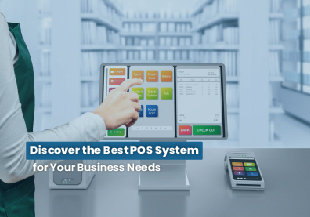CRM software in Pakistan depends on how managers see this software, employee participation, company size, and its perceived market position.
The adoption of CRM software in Pakistan is associated with several challenges. In this article we will discuss adoption challenges and their corresponding solutions :
Social and cultural aspects:
In Pakistan, research has shown that the implementation of this software involves understanding the social and cultural aspects associated with the software, which may differ from those in developed countries.
Solution: Understanding and addressing the social and cultural aspects related to CRM in the local context can help overcome this challenge.
Slow return on investment:
The primary challenge faced by industries in adopting this software is the slow return on investment. In different places like Pakistan people spend money on CRM systems.
Solution: Emphasizing the long-term benefits of CRM, such as improved customer satisfaction and increased profits, can help justify the investment and overcome this challenge.
Employee involvement:
The choice to use a CRM system depends on how managers see this software, employee participation, company size, and its perceived market position. Employee involvement and perception of CRM can influence its adoption.
Solution: Involving employees in the CRM process, addressing their concerns, and Offering proper training can boost people's involvement and backing for implementing CRM.
System selection and requirements gathering:
The process of selecting this system and gathering requirements can be a challenging task, especially in a developing country like Pakistan in situations with few resources and limited expertise.
Solution: Engaging key stakeholders, clearly defining requirements, and considering scalable solutions can facilitate the selection and implementation of appropriate CRM systems.
Stakeholders' expectations:
Customer Relationship Management CRM software in Pakistan, it's important to think about what various people, like managers, employees, customers, and outside partners, expect from the system. They are known stakeholders. By understanding and meeting their expectations, it helps to ensure the system is a good fit for everyone involved.
Solution: Understanding the expectations of different stakeholders, including managers, employees, customers, and external partners, is essential for successful CRM adoption. Customizing the system to fit their needs, communicating clearly, and getting feedback during the setup can make sure everyone is happy and supportive.
Cultural differences:
The implementation of CRM in Pakistan may require a different approach compared to developed countries due to cultural differences. Understanding these differences is essential for successful CRM adoption.
Solution: Understanding cultural differences is essential for the successful implementation of CRM in Pakistan. Tailoring strategies, communication styles, and system functionalities adapting CRM software to fit in with the local culture helps people accept and use them better.
Limited information:
It's a difficult task for organizations in developing countries like Pakistan to adopt CRM systems because there isn't much information available about how it's done. Without examples to learn from, they face challenges in understanding and implementing these systems effectively which is why they face many challenges in adoption.
Solution: In Pakistan, organizations lack knowledge they can seek guidance from industry experts, attend workshops, and leverage online resources. Establishing partnerships with experienced CRM vendors and consultants can provide valuable insights and support in navigating the implementation process.
Huge monetary investment:
Adopting this system can be a significant financial investment, especially for small and medium-sized enterprises in Pakistan. Small and medium-sized businesses often operate with limited resources, and allocating a large sum for a Customer Relationship Management system may strain their financial capabilities.
Solution: Small and medium-sized enterprises struggling with financial constraints can explore cost-effective CRM solutions, opt for phased implementations, and consider cloud-based alternatives. Seeking financial assistance or grants specific to CRM adoption can also alleviate the burden on limited resources.
A non-traditional approach to success evaluation:
Embracing a non-traditional approach to evaluating success, specifically by taking into account the expectations of the various stakeholders within a system, can provide valuable insights. It is especially beneficial in guiding the adoption and effective implementation of Customer Relationship Management (CRM) systems in the context of Pakistan.
Solution: By incorporating the perspectives of diverse stakeholders and measuring outcomes based on customer satisfaction, employee engagement, and market growth, organizations can gain a more holistic understanding of effective CRM software in Pakistan.
Reputation and growth in the market:
Adopting a CRM system can help organizations gain a reputation and grow in the market by improving customer service and customer knowledge.
Solution: Organizations use CRM systems to enhance customer service, personalize interactions, and gain valuable insights for strategic decision-making. By consistently delivering superior customer experiences, businesses in Pakistan can build a positive reputation, foster customer loyalty, and achieve sustainable growth in the market.
Strategies for employee involvement in CRM implementation in Pakistan:
Some strategies for employee involvement in CRM implementation in Pakistan are:
Training and Education
Clear Communication
Continuous Feedback
Rewards and Recognition
Involvement in Decision-Making






 Chat with Prismatic Bot
Chat with Prismatic Bot